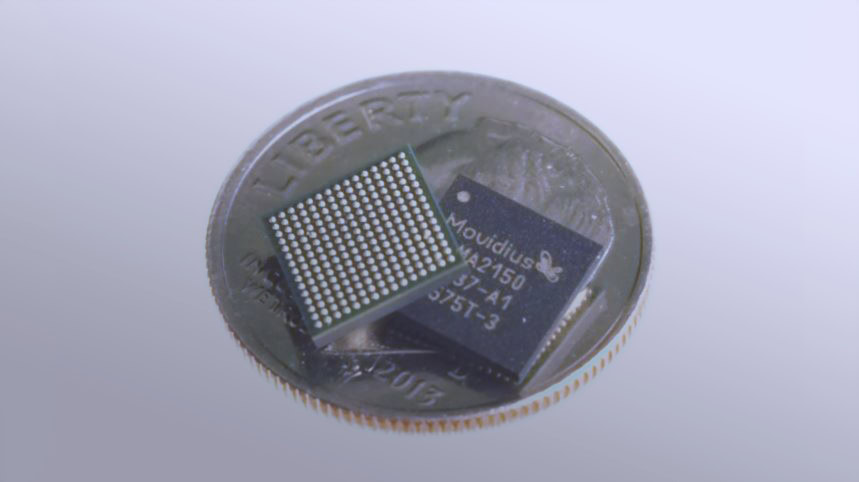Affiliate links on Android Authority may earn us a commission. Learn more.
Intels buys computer vision chip designer Movidius to enhance RealSense

Remember that little known chip company called Movidius that we talked about earlier in the year, the one that powered the first Project Tango tablet and has a new chip inside DJI’s latest drone? Well it seems that Intel has taken an interest in the company too, having now announced plans for an acquisition.
We don’t have any details on the price that Intel is looking to pay or the terms of the deal yet, but the company is clearly beefing up computer vision department. Intel already has its own RealSense platform and chip development business, and it seems likely that the 180 employees working at Movidius will be integrated into Intel’s Perceptual Computing group. So Movidius should soon have plenty of extra resources to pursue its mission to “give the power of sight to machines”.
Intel has been investing heavily in computer vision technology over the past couple of years, having also acquired automotive computer vision company Itseez back in 2015. Along with its RealSense camera technology for mobile devices, the company recently entered the virtual reality space with its Project Alloy headset, and announced improvements to its autonomous drone piloting technology. Exactly the sort of applications that Movidius’ chips are useful for.
“The ability to track, navigate, map and recognize both scenes and objects using Movidius’ low-power and high-performance SoCs opens opportunities in areas where heat, battery life and form factors are key. Specifically, we will look to deploy the technology across our efforts in augmented, virtual and merged reality (AR/VR/MR), drones, robotics, digital security cameras and beyond. ” – Intel
Movidius’ Visual Processing Units (VPUs) are designed specifically to enable efficient vision sensing applications that have a very small power budget, such as drones, phones, and other gadgets. The company’s Myriad 2 processor boasts a sub 1 Watt power requirement, making it an ideal co-processor, and it fits into a small 35 square millimetre die area, meaning that it’s also reasonably cost effective.
For a closer look at what Intel and Movidius might end up bringing to the market, and for a look at how the latest Myriad 2 VPU works, check out the video below.